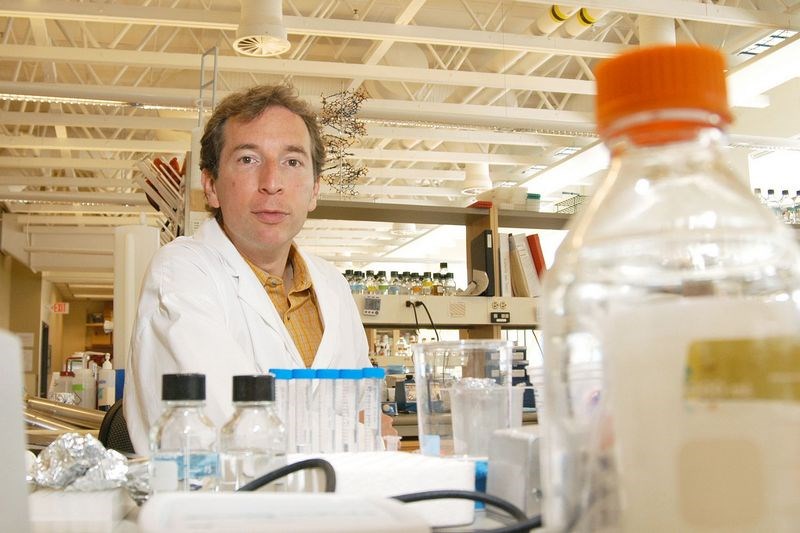Researchers at the University of Northern British Columbia (UNBC) have made a long sought-for technical breakthrough in gene splicing that has potential long-term implications for the struggle to understand genetic disorders, such as cystic fibrosis, spinal muscular atrophy, and certain types of dwarfism.
The results of their research will be presented at the Western Canada RNA Conference (RiboWest) hosted by UNBC on Monday and Tuesday. The work was a component of the master's project of recent UNBC grad Amy Hayduk who hails from the Nass Valley in B.C.
"We have discovered that a region of an RNA molecule (known as U4) that was previously thought to play no role in gene splicing is, in fact, essential for assembling the splicing machinery," said UNBC chemistry professor Stephen Rader, in whose lab the research was conducted.
"We also discovered a new method of studying what this molecule is doing in the test tube. Scientists have been trying to figure this out for about 30 years."
Gene splicing is a naturally occurring process that involves cutting out unnecessary portions of a gene and joining the remaining parts together. The process is essential to the survival of many organisms - including humans. Geneticists can mimic the process to repair genes or impede their progress altogether.
"U4 is enigmatic. We found mutations in U4 that make it better than normal at assembling the splicing machinery, but worse at the actual splicing reaction," said Rader, who is also one of Ribowest's organizers.
"It leaves before the actual splicing happens, so it is apparently only there to help put things together, but we don't yet understand how or why.
"This is as if you were tinkering with the ignition on your car and managed to make the ignition work better, but then discovered that, even though the car starts better, it no longer runs."
A manuscript of the research has been submitted to a prominent biochemistry journal for publication later this year.
The seventh Ribowest conference includes participants from provinces as far away as Quebec and from states including Oregon and California.



